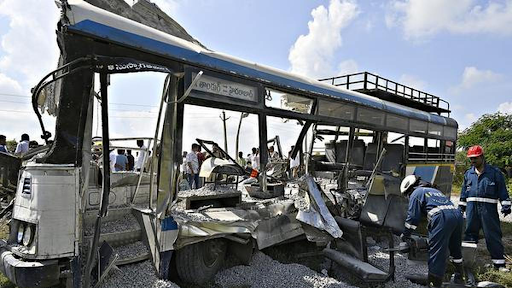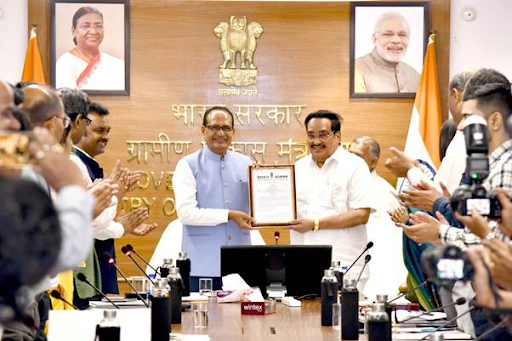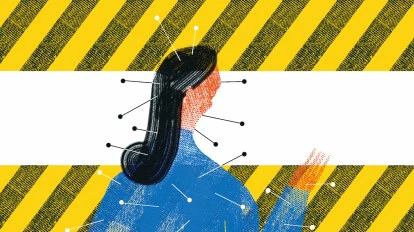Description

Figure 2: No Copyright Infringement Intended
Context:
- E-shram portal needs to be worked upon.
About E-Shram Portal:
- Ministry of Labour & Employment has developed eSHRAM portal for creating a National Database of Unorganized Workers (NDUW), which will be seeded with Aadhaar.
- It will have details of name, occupation, address, educational qualification, skill types and family details etc. for optimum realization of their employability and extend the benefits of the social security schemes to them.
- It is the first-ever national database of unorganised workers including migrant workers, construction workers, gig and platform workers, etc.
Objectives:
- Creation of a centralized database of all unorganized workers (UWs) including Construction Workers, Migrant Workers, Gig and Platform workers, Street Vendors, Domestic Workers, Agriculture Workers, etc., to be seeded with Aadhaar.
- To improve the implementation efficiency of the social security services for the unorganized workers.(ii) Integration of Social Security Schemes meant for UWs being administered by MoLE and subsequently those run by other ministries as well.
- Sharing of information in respect of registered unorganised workers with various stakeholders such as Ministries/ Departments/ Boards/ Agencies/ Organisations of the Central & State Governments through APIs for delivery of various social security and welfare schemes being administered by them.
- Portability of the social security and welfare benefits to the migrant and construction workers.
- Providing a comprehensive database to Central and State Governments for tackling any National Crises like COVID-19 in future.
Who can register in eShram (NDUW) Portal?
- Any individual satisfying following condition can register on the portal:
An unorganised worker (UW).
- Age should be between 16-59 years.
- Not a member of EPFO/ESIC or NPS (Govt. funded)
Who is Unorganised Worker?
- Any worker who is a home based-worker, self-employed worker or a wage worker in the unorganised sector including a worker in the organised sector who is not a member of ESIC or EPFO or not a Govt. employee is called an Unorganised Worker.
Challenges:
- Issue of Data Security: data security is one of the vital issue given it is a mega-sized database. There is also a lack of national level data security law. Another challenge is regarding sharing of data with State governments whose data security capacities vary.
- Challenge of Coverage: By excluding workers covered by EPF and ESI, lakhs of contract and fixed-term contract workers will be excluded from the tag of UW. It excludes millions of workers aged over 59, which constitutes age discrimination. Given minimal or no social security for them, their exclusion will hurt their welfare.
- Challenges of Identity: The nuances of the unorganised workers’ identity are so complex. Apprehensions are raised on how mechanical and assumptions-based portal registration will be able to capture the complexities and dynamics involved regarding them.
- Lack of Smart Phone: Many workers will not have an Aadhaar-seeded mobile or even a smartphone. Aadhaar-seeding is a controversial issue with political overtones, especially in the North-eastern regions.
- Lack of definition: Even though the ministry has included gig workers in this process, it is legally unclear whether the gig/platform worker can be classified first as a worker at all (the other three Labour Codes do not include these workers), and second as organised or unorganised workers.
- Challenges of Coordination: The central government will have to depend on the state governments for this project to be successful. In many states, the social dialogue with the stakeholders especially is rather weak or non-existent.
- Challenge of Corruption: There is the concern of corruption as middle-service agencies such as Internet providers might charge exorbitant charges to register and print the E-Shram cards.
Way Forward:
The success of the project depends on:
- The involvement of a variety of stakeholders apart from trade unions.
- Massive and innovative dissemination exercises involving multiple media outlets of various languages.
- The holding of camps on demand by the stakeholders and on their own by the Government, efficiency of the resolution of grievance redress mechanisms, micro-level operations, etc.
- The involvement of surveillance agencies is crucial.










